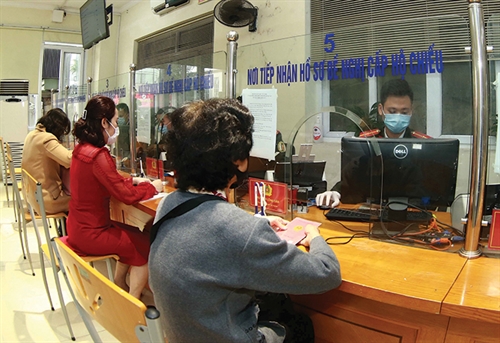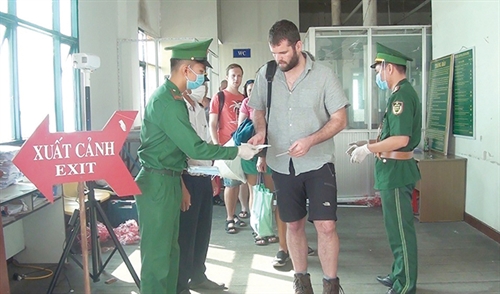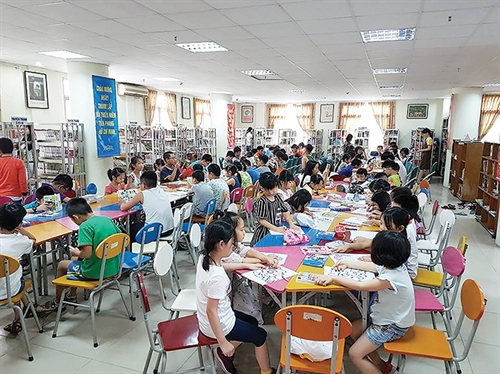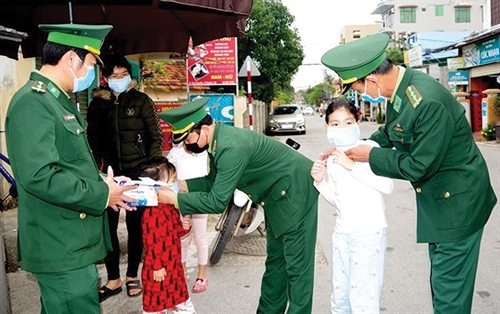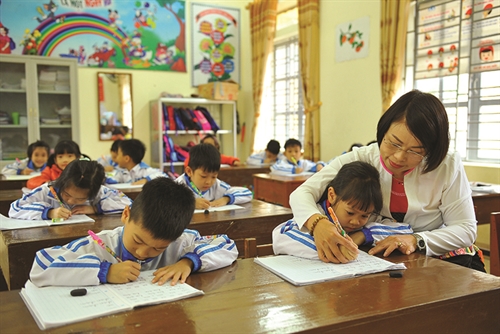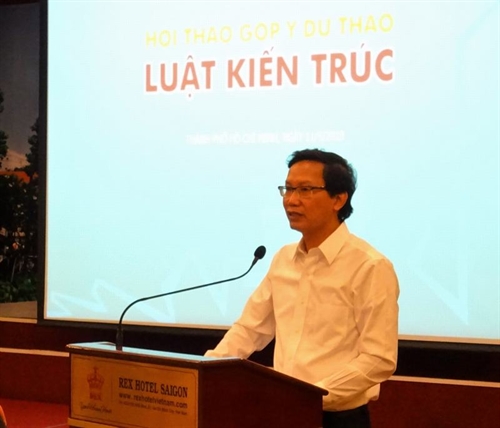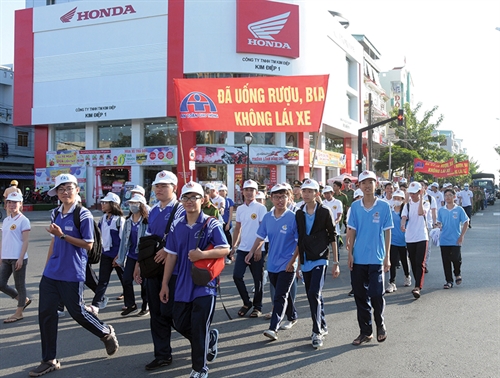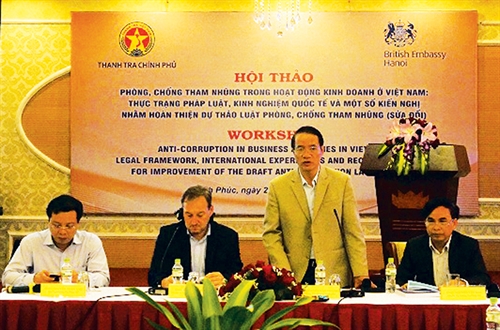To institutionalize the Party’s guidelines and policies and the 2013 Constitution’s provisions on youth, the 14th National Assembly in June passed the Youth Law (the Law) at its ninth session in replacement of the 2005 version. The Law will come into effect on January 1 next year.
The Law prescribes the rights, obligations and responsibilities of youth; the State’s policies toward youth; the responsibilities of agencies, youth organizations, other organizations, educational institutions, families and individuals toward youth; and the state management of youth.
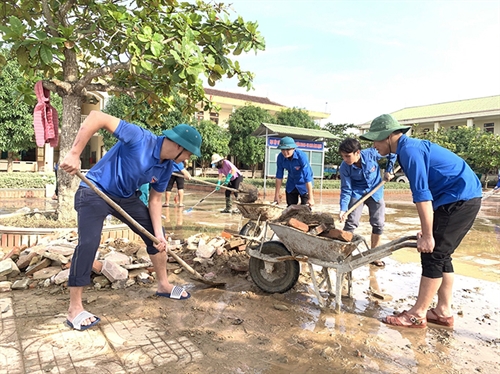 |
| Ha Tinh province’s Youth volunteers clean up the environment after a flood Photo: Hoang Nga/VNA |
Comprising seven chapters with 41 articles, the Law applies to Vietnamese citizens between 16 years and 30 years of age along with agencies, organizations, educational institutions, families and individuals.
The State will apply treaties on the rights of the child to which Vietnam is a contracting party to people aged between full 16 years and under 18 years as suitable to Vietnam’s practical conditions.
Role and responsibilities of youth
The main purpose of establishing rights, obligations and policies for youth is to create a legal framework for promoting the ability and intelligence of young people as contributions to the country, instead of creating privileges and benefits for youth compared to other citizens.
The Law does not include detailed provisions on youth’s rights and obligations in each field so as to avoid overlaps with other laws.
The role, rights and obligations of youth are defined in Article 4 of the Law. Specifically, youth constitute a great, shock and creative social force taking the lead in the cause of renewal and national construction and defense. They play an important role in the cause of national industrialization and modernization, international integration and socialism construction. They have the rights and obligations of citizens as defined by the Constitution and law.
The Law devotes one chapter to stipulating youth’s responsibilities toward the Fatherland, the State, the society, their families, and themselves so as to create a favorable legal corridor for young people to fulfill their responsibilities.
The State’s policies toward youth
Provided in Chapter III of the Law, the State’s policies toward youth include those on study and scientific research, labor and employment, startups, health protection, care and improvement, culture, physical training and sports, and national defense.
Other policies include those toward youth volunteers, voluntary youth, talented youth, ethnic minority youth, and people aged between full 16 years and under 18 years.
Noticeably, the Law sets out principles to ensure the exercise and performance of youth’s rights and obligations and the implementation of the State’s policies toward youth. Accordingly, youth’s rights and obligations will be recognized, respected, protected and guaranteed under the Constitution and law. It is not permitted to practice discrimination based on nationality, gender, social strata, belief, religion, educational level and occupation in the exercise and performance of youth’s rights and obligations. The State, organizations, educational institutions, families and individuals have to create conditions for youth to exercise their rights and perform their obligations.
Moreover, the State’s policies toward youth must ensure youth development objectives, create conditions for youth to exercise their rights, perform their obligations, fulfill their responsibilities and bring into play their capabilities. The formulation and implementation of the State’s policies toward youth must ensure their participation, and respect and respond to their opinions and aspirations. These policies are made separately or incorporated into policies of relevant sectors and localities.
As required in Article 10 of the Law, the Prime Minister and chairpersons of People’s Committees at all levels will hold dialogues on youth affairs with youth at least once a year while heads of agencies, organizations and people’s armed forces units will hold dialogues with youth at the request of youth organizations.
While the 2005 Law did not have provisions on resources for implementation of the State’s policies toward youth, the Law states in Article 6 that the State will allocate resources for the formulation and implementation of policies toward youth. Financial resources for implementation of policies toward youth include the state budget, aid, financial assistance and other lawful contributions of organizations, enterprises and individuals at home and abroad.
International cooperation on youth
Under Article 8 of the Law, international cooperation on youth must ensure equality, respect for independence, sovereignty and territorial integrity, and conformity with the law of each country, treaties to which Vietnam is a contracting party, and international practices.
International cooperation on youth will focus on:
- Participation in international organizations; conclusion and implementation of treaties and international agreements on youth; and programs and projects on international cooperation on youth;
- Exchange of information, management experiences as well as policies and law on youth; and,
- Joint activities of Vietnamese youth and youth of other countries.- (VLLF)

